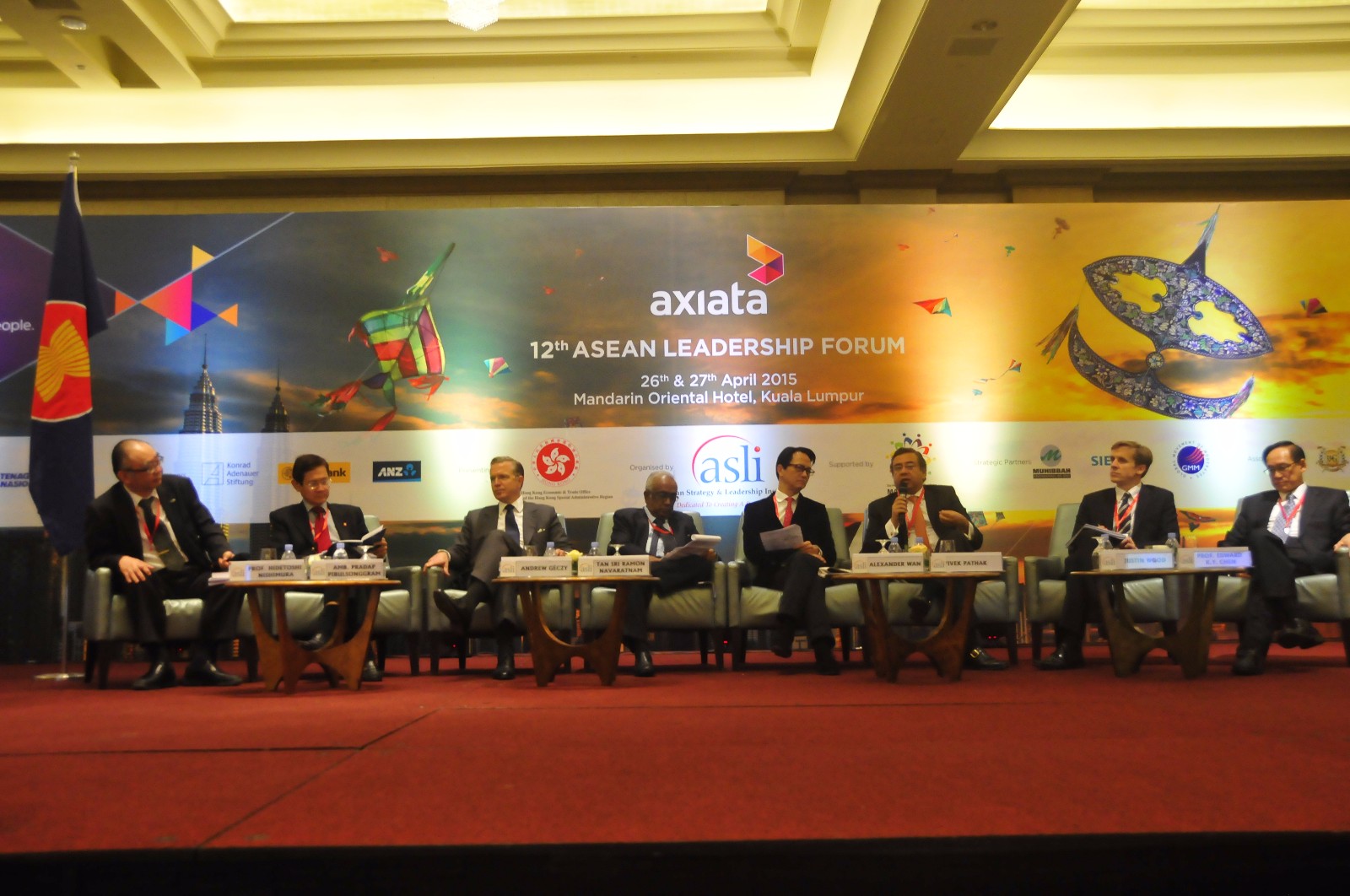2015-05-04
Elaine Tan

Amid the euphoria surrounding this year’s establishment of a common market for the Association of Southeast Asian Nations (ASEAN), many remaining obstacles and pitfalls have to be carefully navigated. At the 12th ASEAN Leadership Forum (ALF) — which was held in conjunction with the 26th ASEAN Summit in Kuala Lumpur — government, business, academic, youth and civil society leaders took stock of realities and debated the way forward for the region. “ASEAN is essential for continued peace, stability and prosperity in Southeast Asia and (the fact) it has kept peace in the region for 50 years is a testimony to (its) resilience and success,” said Michael Yeoh, chairman of the ALF. Yeoh is also CEO of the Asian Strategy & Leadership Institute, the think tank that co-organized the forum together with Malaysia’s Ministry of International Trade and Industry. This is a pivotal year for ASEAN, marking the start of its three community pillars: The ASEAN Political-Security Community, the ASEAN Economic Community (AEC) and the ASEAN Socio-Cultural Community. Diversity across all fronts among the 10-member ASEAN remains more of a challenge than strength at the moment. Even economic integration, which has received the most attention in view of the upcoming AEC, has been plodding. “Sometimes people wonder whether economic integration is even possible in such a diverse region,” said Pushpanathan Sundram, chairman of the China-ASEAN Business Association. Implementation is lagging and current scorecards only offer a simplistic tracking of compliance, not actions taken. “The gains of trade liberalization have been overtaken by non-tariff barriers. Governments are trying to protect their domestic industry at the expense of ASEAN and global competitiveness,” said Sundram, who is also the former ASEAN deputy secretary-general. ASEAN needs to harmonize. Pointing to the World Bank Ease of Doing Business Index and the disparity between ASEAN nations’ ranking, Ian Buchanan, senior executive advisor at consultancy firm Strategy& in Sydney, cautioned that there will be a dramatic pullback in foreign direct investment if the region does not close the gap between its members. “Domestic reform, domestic institution capacity building, political reform, business and politics are important to stay in the game moving forward,” he added. While Southeast Asia has enjoyed a period of peace, stability and economic growth, the external environment that made this possible is changing and the region cannot hope to achieve the same without making fundamental changes. “Let’s do a reality check on what’s happening,” said Rafidah Aziz, chairman of AirAsia X. “We need to ensure ASEAN and AEC remain in the game, let alone be a game changer.” Rafidah, the former minister of International Trade and Industry in Malaysia, is less concerned about the AEC and economic integration. “It will happen,” she said. “The private sector will ensure that it does. The AEC has evolved much stronger, faster, (and become) more visible. But we cannot move forward — one vision, one community, one people — if we’re only focusing on the AEC.” Rafidah added that to form the kind of entity that can shape events globally, ASEAN leaders need to pay attention to peace and security, and social cohesiveness. There needs to be a better articulation of the ASEAN identity. In tandem, the grassroots have to be engaged to bridge the fractious nature of the region, whether internally or across borders. This includes connecting with millennials — the generation born between the early 1980s and the early 2000s — at their level and on their preferred platforms to get them on board the ASEAN community agenda and identity. Inclusiveness and people-centeredness — both of which were highlighted by Philippine Trade and Industry Secretary Gregory L Domingo and Cambodian Prime Minister Samdech Hun Sen in their respective addresses in Kuala Lumpur — must be emphasized to close development gaps. But there needs to be less lip service and more action. “Let’s stop with the endless motherhood statements, endless visioning, bureaucracies that don’t understand ASEAN, domestic imperatives that don’t allow people to come on board, scorecards that don’t matter because nobody is pushing for ratification,” said Rafidah. ASEAN needs to get its house in order because the world is waiting to connect with the region. Source: http://www.chinadailyasia.com/2015-05/01/content_15258314.html